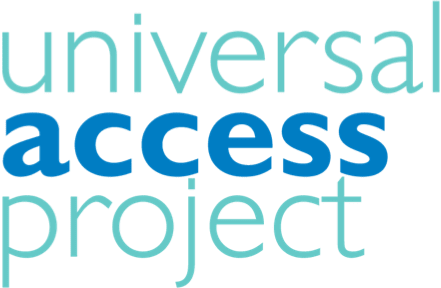Universal Access Project Issues New Call For Company Commitments To Workplace Women’s Health and Well-being
The Universal Access Project (UAP) has issued a call for global and national companies to make new, tangible, timebound commitments to women’s health, well-being, and gender equity in the workplace and throughout global supply chains. UAP, in collaboration with leading international advocacy organization Global Citizen, will support companies in shaping such commitments and connect them with relevant experts, implementing partners, and other resources to make the commitments a reality.
Commitments will be announced at the 2024 Global Citizen Festival, to be held on Central Park’s Great Lawn in New York City on September 28, hosted by Global Citizen Ambassador Hugh Jackman.
“Worker health is a human right and is critical to productive companies, growing economies and resilient communities,” said Dilly Severin, Executive Director of the Universal Access Project. “As we work to advance the United Nations’ Sustainable Development Goals, this is a significant moment to recognize that women in particular face systemic health disparities that are increasingly exacerbated by climate change and other global crises. Corporations must take effective action now to adopt policies and practices that ensure health and well-being, and drive equity.”
Companies have a responsibility to respect worker health as a human right. A corporate commitment provides a unique opportunity to advance worker health and well-being in measurable ways that prevent and mitigate adverse health impacts, particularly for women workers who make up the backbone of global value chains. The failure to address women’s health disparities significantly harms the global economy, according to the 2024 McKinsey Insight Report, “Closing the Women’s Health Gap.” The report finds that women spend 25 percent more time in ill-health than men — this is due to reproductive health needs but also to disparities in treatment for all diseases — and that closing the women’s health gap could boost the global economy by $1 trillion through increased participation and productivity in the workforce.
UAP and Global Citizen will help companies shape women’s health commitments relevant to their sector and context and help ensure they are measurable and sustainable. Commitments can take many forms and may include new workplace practices that ensure access to health education, information or services, onsite or off; policies that prevent sexual harassment and violence and expand health benefits for women and their families; and operational changes to ensure a healthy working environment. Commitments may also entail more public-facing actions, such as supporting health promotion campaigns and joining women’s health-related coalitions or efforts. In any form, they must address essential health needs of women to information, products and services.
To learn more about making a commitment, please visit: www.universalaccessproject.org/commit or contact: Shreya Murali, Senior Manager for Transformative Action, smurali@unfoundation.org.
This initiative is supported by MSD, known as Merck & Co., Inc. in the United States and Canada.
About the Universal Access Project
The Universal Access Project convenes an innovative community of philanthropists, advocates, policymakers and companies striving for a world where all people have full bodily autonomy and the right to self-determination in family planning, pregnancy, parenting and sexual health and well-being. Learn more at www.universalaccessproject.org.
